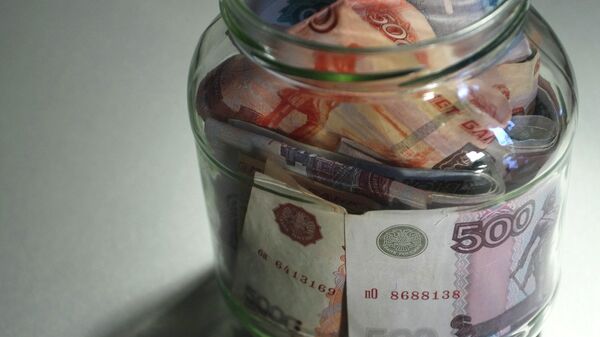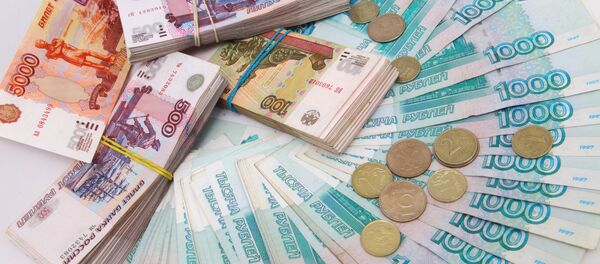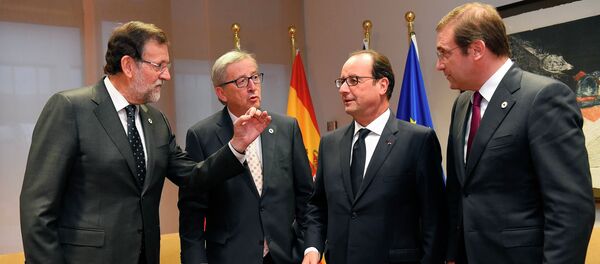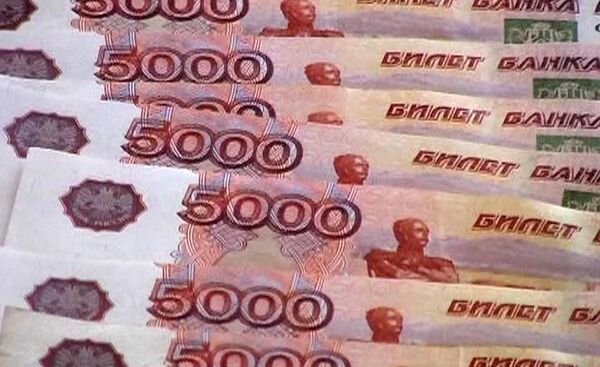Prominent European policymakers claim the sanctions policy has proven inefficient. In an interview with the Austria Press Agency, Austrian President Heinz Fischer has emphasized that the "economic crisis in Russia is capable of creating more problems than it is capable of solving," adding that tougher sanctions obviously would not result in "the desired political goals."
The ruble's depreciation, together with falling oil prices, has triggered deep concerns about the future of the Russian economy among financial specialists. Grand Capital analyst Yuri Prokudin believes that Europe's ongoing debate regarding anti-Russian policies may result in the partial or full cancellation of EU sanctions against Moscow in the first quarter of 2015. The analyst stresses that the EU's business and agricultural sectors are now openly expressing their growing dissatisfaction with Brussels' political course. He underscores that if the EU abolishes its sanctions, Moscow will regain access to advanced Western deepwater drilling technologies, which are especially important for Russia if it is to make use of the natural resources of the Arctic shelf.
However, the possibility that relations between Russia and the West will continue to deteriorate cannot be excluded, the expert warns. According to Prokudin, tougher sanctions will inevitably lead to food and medicine prices rising by up to 12-20 percent, bolstered by further ruble devaluation.
Meanwhile, sliding oil prices will obviously affect the ruble and Russia's economy as a whole. Major petroleum producers, particularly Saudi Arabia, are not planning to cut oil extraction yet. On the other hand, since China and Europe, the main oil consumers, are currently facing an economic slow-down, it is unlikely that they will increase oil consumption anytime soon. Thus far, there are no objective conditions for the rapid recovery of oil prices, believes Prokudin.
The analyst predicts that the ruble will settle at 50-55 rubles to the US dollar (with oil prices at $57-$62 per barrel), and 63-67 rubles to the euro in the beginning of 2015. If oil prices fall below $50 per barrel, the ruble will lose its position and the exchange rate will drop to 60 rubles to the dollar and 70 to the euro.
"Finally, sanctions are pushing Russia into the arms of China, speeding up the formation of a non-Western global financial infrastructure which poses an alternative (and a challenge) to the existing Western-dominated system," Nicu Popescu stressed.
Indeed, Russia is currently strengthening its political and economic ties with China and India. Prominent Russian economists, particularly Sergey Glazyev, a Full Member of the Russian Academy of Science since 2008, point to the advantages of Eastern "state capitalism" in comparison with the "financial capitalism" of the West. They present a "third scenario," claiming that Russia has got enough inner resources to recover from the ongoing recession. Russia should restructure its Western-style economy and establish closer connections between industry, the financial elites and the state. The new strategic course would result in continuous growth and will make the country completely independent and self-sufficient, according to Glazyev.







